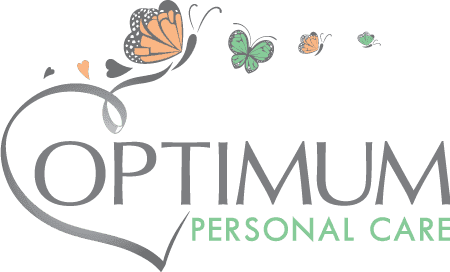A Brief Introduction to Elderly Care Home
Elderly care homes are dedicated environment that offers specialized care, medical attention, and activities tailored to the elderly. From providing around-the-clock support to helping them remain as independent as possible, elderly care homes offer a safe and comfortable environment for those who may need extra help and care.
Caring for elderly relatives can present a unique set of challenges. From trying to navigate the complexities of healthcare to providing the necessary emotional support, it can be a daunting task. Fortunately, there is a way to ensure that your elderly loved one is receiving the care they need, elderly care homes.
There are many different types of elderly care homes available, so it is important to understand what each of them offers and how they can help your loved one. Read on to learn more about elderly care homes and what you need to know before making the choice to move your elderly relative into one.
Overview of Elderly Care Home
Elderly care homes are residential facilities that provide long-term care for the elderly. Sometimes referred to as senior care, retirement homes, or elderly care facilities, these are usually government-regulated facilities that provide 24-hour medical care, supervision, and assistance with activities of daily living (such as bathing, dressing, and eating), social and recreational activities, nutritional meals, and assistance managing finances.
Types of Services Provided In Elderly Care Home
Based on your loved one’s level of care needs, a staff member at the elderly care home will determine the type of services that are appropriate for him or her. Here are some examples of services and amenities you might find at an elderly care home: –
Basic medical care
In many elderly care homes, medical staff will administer basic medical care such as administering medication, monitoring blood pressure and heart rate, responding to and treating infections and providing wound care.
Assistance with activities of daily living
Activities of daily living are self-care tasks that all people must complete each day to maintain their health. These include daily hygiene tasks like brushing teeth, combing hair, and showering; eating nutritious meals; drinking water; and getting outdoors for fresh air.
Nursing care
Nursing care at an elderly care home may include administering medication, assisting with bathing, dressing and grooming, monitoring vital signs, and responding to changes in condition. Depending on your loved one’s level of care needs, nursing care may also include assistance with feeding, wound care, and monitoring the progress of certain conditions, such as diabetes, COPD, and high blood pressure.
Therapy
Therapy services in elderly care homes may include help with swallowing and nutrition, range of motion exercises, balance assessments, transfers, and ambulation training.
Wound and infection care
To prevent infections, staff members in elderly care homes may perform daily wound care on residents with bedsores, eczema, or psoriasis.
Medication management
At many elderly care homes, registered nurses provide medication management, such as administering injections and medication, monitoring the effects of medication, and responding to medication side effects.
Hospice services
This type of service provides holistic care to terminally ill individuals who are experiencing decreased mobility and symptoms such as pain, nausea, and sleeplessness related to the end of life. Hospice workers provide support and assistance to both the resident and their families, such as providing emotional and spiritual support and helping families find community services.
Financial Considerations In Elderly Care Home
When the time comes to choose an elderly care home for a loved one, it’s important to remember that financial considerations should be taken into account. It’s not just about finding a place that meets the physical and emotional needs of your relatives, but also a place that fits within their budget. It can be a difficult task to find the right home, but understanding the financial implications of each option can help ensure that you make the best choice for your loved one. From fee structures, insurance and payment plans to government subsidies and discounts, there are a range of factors to consider when picking the right elderly care homes.
Factors Contributing to Quality of Care In Elderly Care Home
When considering which elderly care home is the best fit for your family member, you may want to assess the quality of care offered. Here are some important factors to consider when evaluating the quality of care at elderly care homes: –
Staffing hours
One of the most important factors influencing the quality of care at an elderly care home is the number of staff members on duty per shift. Ideally, the elderly care home you select will have a higher number of staff members per shift. This ensures that your loved one is cared for by multiple staff members who can help monitor for changes in condition, respond to needs, and provide assistance as needed.
Availability of services
Another important factor in evaluating the quality of care at elderly care homes is determining which services are offered. Ideally, the elderly care home you select will provide a wide range of services, including medical care, assistance with activities of daily living, and hospice care. The more services offered; the better your loved one’s level of care will be.
How Elderly Care Homes Can Make a Difference
Elderly care homes are an essential part of providing care for the elderly population. They provide a safe and secure environment in which those who are elderly can live and be cared for with dignity and respect. Elderly care homes are a vital part of our society as they offer a wide range of services, from medical and nursing care to recreational activities, that are all tailored to the needs of the elderly. They are an essential part of providing care for the elderly population and can make a positive difference in their lives.
How We Can Help
When families choose Optimum Personal Care, they can be assured that their loved one will no longer need to transfer to a different facility. Our community offers 24-hour supervision and assistance and access to social and recreational activities. Physicians and NP’s visits weekly. This allows seniors to age in place and maintain their independence and quality of life. Moreover, we provide respite for caregivers to better manage their own lives while also caring for their loved ones.
If you are looking for an assisted living community that provides the best care for your loved one, look no further than Optimum Personal Care. Contact us today to learn more about our services and how we can help your family.


